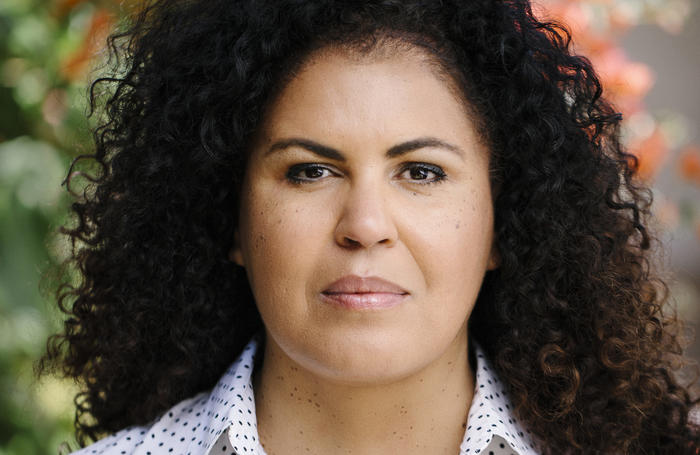
Narrative Matters: The Stories that Shape our Lives
Narrative Matters: The Stories that Shape Our Lives will be a yearlong seminar series focused on curated conversations about the centrality of stories in contemporary selfhood. Convened by the 2024-2025 Mary L. Cornille Distinguished Scholar in Residence, Jonathan Adler, and grounded in the work he is doing on a forthcoming book, each session will feature a discussion between Professor Adler and one or more guests, as well as time for conversation with those in attendance. Professor Adler has assembled a slate of experts from across the social sciences, humanities, and the arts, to curate a kaleidoscopic perspective on narrative. As a set, the seminar series will offer a timely and rich opportunity to engage with the stories that shape our lives as individuals, as communities, and as nations.
As the curator and convener of this series, Professor Adler brings an interdisciplinary perspective to the topic of narrative. He is a Professor of Psychology at Olin College of Engineering and a Senior Lecturer at Harvard Medical School. His research focuses on the ways in which narrating our lives constitutes our identity and shapes our well-being. He serves as Editor of Personality and Social Psychology Review, the top-ranked journal in those fields, dedicated to publishing major advances in theory. Professor Adler is also the Chief Academic Officer of Health Story Collaborative, a non-profit organization based in Cambridge that seeks to center storytelling in the fragmented and fragmenting American medical ecosystem. Finally, Professor Adler is also a theater director and playwright. His play, Reverse Transcription (co-authored with Jim Petosa), premiered Off-Broadway in July 2022 at The Atlantic Theater Company’s Stage 2, produced by PTP/NYC. Professor Adler has intentionally assembled this seminar series to appeal to a wide audience across the Wellesley faculty, hoping to draw in folks working in all disciplines of thesciences, social sciences, humanities, and the arts.
Monday, September 16, 2024
12:45-2:00pm
The series will kick off on September 16th with a session titled Narrative, Disability, and The Question of Interdependence. This session will take up the tough question of what it means to care for each other in a society that places so much emphasis on independence. Conditions of disability help reveal the ways in which we are fundamentally dependent organisms and offer an invitation to think deeply about shared interdependence. Indeed, the interdependent self (interdependent with other people, with technology, and with service animals) is a common emergent theme in Professor Adler’s program of research focused on identity among people with disabilities.
Professor Adler will be joined in conversation with two experts on this topic:
-
Sara Hendren is an Associate Professor in Art and Design with a joint appointment in the School of Architecture at Northeastern University. She is the co-designer of the Accessible Icon, the symbol replacing designated parking for people with disabilities and other indicators of accessibility. She is also the author of the 2020 book What Can A Body Do: How We Meet the Built World (Penguin/Random House; Riverhead), which was an NPR Best Book of the Year in 2020. The New Yorker review of her book asked, "Why aren't more people like her in charge of the world?" Hendren is also an artist, filmmaker, and designer. Her work has been exhibited on the White House lawn under the Obama administration, at the Victoria & Albert Museum, and the Seoul Museum of Art, among other venues, and is held in the permanent collections of the Museum of Modern Art and the Cooper Hewitt Museum.
-
Andrew Leland is a 2024 Pulitzer Prize finalist for his book, The Country of the Blind: A Memoir at the End of Sight (Penguin/Random House), which as named one of the Best Books of the Year by The New Yorker, The Washington Post, and The Atlantic. He has taught nonfiction writing, radio, and digital storytelling at Smith College, Wesleyan University, UMASS Amherst, and the University of Missouri. Leland has also written for The New York Times Magazine, the San Francisco Chronicle, the catalog for the 2014 Whitney Biennial, and McSweeney's.
This session may be of special interest to people working in the humanities and social sciences on issues pertaining to disability, fields that engage with the development of assistive technology (including technical and scientific fields), artists whose work engages with embodiment, and those working on questions of independence/dependence/interdependence across all disciplines.
Session II: Narrative and the American Presidency
Monday, October 21, 2024
12:45-2:00pm
On October 21, two weeks before the U.S. Presidential Election, the series will reconvene with a session titled Narrative and the American Presidency. This session will look at the dynamic interplay between U.S. Presidents' personal stories and the sweeping story of American history. Professor Adler's book project takes seriously the connections between the stories individual people tell about their lives and the broad cultural narratives that shape our society and our history.
Professor Adler will be joined in conversation with:
- Dan McAdams, the Henry Wade Rogers Professor of Psychology and Professor of Education and Social Policy at Northwestern University. He is the author of more than 300 scholarly articles, numerous edited volumes, and eight books, all focused on the narrative study of lives. McAdams has written two books about American Presidents: The Strange Case of Donald J. Trump: A Psychological Reckoning (Oxford University Press) and George W. Bush and the Redemptive Dream: A Psychological Portrait (Oxford University Press), as well as scholarly articles about the psychology of Presidents Barack Obama and Joe Biden. He has spoken extensively with media about American Presidents and wrote a very popular cover story for The Atlantic called "The Mind of Donald Trump." He is current working on a project titled "The Psychology of the American Presidency."
This session may be of special interest to people working in the social sciences and humanities on topics pertaining to American politics, those in any discipline focused on leadership, and anyone interested in understanding the stories that shape American elections in the two weeks before we again head to the polls.
Session III: Narrative and the Performance of Self
Monday, February 3, 2025
12:45-2:00pm
On February 3rd, the series will continue with a session titled Narrative and the Performance of Self. This session will ask us to think about the limits of narrative as a metaphor for identity and to take seriously the embodied enactment of self. Professor Adler's work in theater and storytelling extend his own social scientific research on history.
Professor Adler will be joined in conversation by two experts on this topic:
- Jim Petosa, Emeritus Professor of Directing and Dramatic Criticism, served as Chair of the School of Theatre at Boston University for 17 years. He also served as Artistic Director of Boston's NewRep Theater (2012-2019), Maryland's Olney Theater Center for the Arts (1994-2012), and as Co-Founder and Co-Artistic Director of PTP/NYC (1987-today). He has directed hundreds of plays, musicals, and operas, including numerous Off-Broadway credits. In 2022, a play that Professor Petosa and Professor Adler co-wrote, Reverse Transcription, premiered Off-Broadway at The Atlantic Theater Company's Stage 2, produced by PTP/NYC, directed by Professor Petosa.
- Beth Wynstra is an Associate Professor of English and Faculty Director of the Center for Engaged Learning and Teaching at Babson College, as well as the Artistic Director of The Empty Space Theater. Professor Wynstra is one of the foremost scholars of the work of Eugene O'Neill, most recently in her book Vows, Veils, and Masks: The Performance of Marriage in the Plays of Eugene O'Neill (University of Iowa Press). Together, Professor Wynstra and Professor Adler developed and co-teach a Babson-Olin-Wellesley course called "Constructing and Performing the Self," which blends the psychological study of identity with the theater of solo performance. You can learn more about their course here.
This session may be of special interest to people working in any arts, humanities, or social science discipline focused on performance, broadly construed. While it will certainly appeal to people in the performing arts, it will also be compelling for people working on topics related to performativity, both at the individual and the cultural levels.
Session IV: Narrative and the Co-Construction of Identity Across the Lifespan
Monday, March 3, 2025
12:45-2:00pm
On March 3rd, the series will conclude with a session titled Narrative and the Co-Construction of Self Across the Lifespan. This session will reinvigorate conversations about the role of families, romantic partners, and close others, in the co-construction of identity from childhood through old age. Developmental work tends to focus on the early years of life, examining the ways parents and then peers socialize our sense of self, but the co-construction of identity continues across the lifespan. Professor Adler’s book project examines these processes, especially in midlife.
Professor Adler will be joined in conversation with:
- Robyn Fivush, the Samuel Candler Dobbs Professor of Psychology and Director of the Institute for Liberal Arts at Emory University. Professor Fivush is one of the world’s leading experts on the development of autobiographical memory and the relations among memory, narrative, identity, trauma, and coping. She has studied intergenerational storytelling and has facilitated “story circles,” communal storytelling events. As Director of the Institute for Liberal Arts, she has spearheaded interdisciplinary collaboration across Emory University. She has a very popular column at Psychology Today called “The Stories of Our Lives.”
lcote2@wellesley.edu
Quint Buccholz, "Mann auf Einer Leiter"
-
Apr 10, 4:30–6 PM
-
Mar 24, 12:45–2 PM
-
Apr 14, 4:30–6 PM
-
Mar 24, 12:45–2 PM
-
Apr 1, 5–6:30 PM
-
Apr 2, 5–6:30 PM





